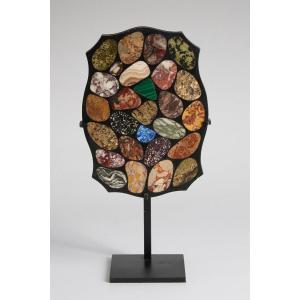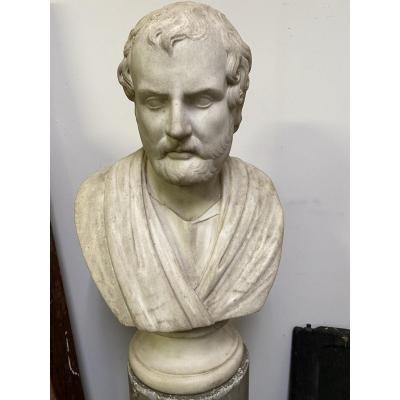This finely carved porphyry plaque dates from the late 19th century.
This work is most likely a souvenir from the Grand Tour, cultural journeys undertaken by European elites between the 17th and 19th centuries, aimed at discovering the artistic and cultural heritage of ancient classical civilizations.
The subject of this plaque is the Roman Emperor Elagabalus (218-222 AD), a controversial figure of the Severan dynasty.
He is notably known for being one of the first documented examples of transgender identity.
Elagabalus wore women's clothing and requested to be referred to by feminine pronouns. Its' life notably inspired artists of the Decadent movement of the late 19th century.
This plaque is made of porphyry, a stone extracted from Egyptian quarries and reserved for imperial use during ancient Rome.
Porphyry is a particularly hard stone and difficult to sculpt.
Dimensions: Height 15cm - Width 10 cm






























 Le Magazine de PROANTIC
Le Magazine de PROANTIC TRÉSORS Magazine
TRÉSORS Magazine Rivista Artiquariato
Rivista Artiquariato